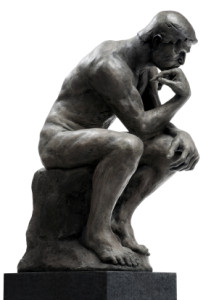
This blog post is part of a series of entries on education in contemporary society.
Education is essential to human formation and flourishing. So, too, are mentorship and friendship. In fact, the best kind of education includes mentorship and friendship in various ways. In view of such education, human society forms and flourishes best.
Trinity Academy in Northeast Portland seeks to embody these qualities in its approach to education. Trinity is a classical Christian middle and high school open to people of various backgrounds and traditions who prize the holistic integration of faith and learning in the arts and sciences (for more on Trinity, watch this video).
Trinity sees itself on Christian mission at the heart of the city, though not in a parochial manner. In a variety of ways, Trinity is a prophetic complement to public school education in the urban context. What do I mean by prophetic complement? As prophetic, it highlights and models a distinctive approach to education that is often subject to neglect. Secular educational institutions do not often (if ever) promote the integration of faith and learning. Trinity recognizes the need to incorporate every area of life into education, including the spiritual domain. Still, while emphasizing the integration of faith and learning, indoctrination and partisanship are not the end game. For example, students have opportunity to study such catalytic and diverse thinkers as Aristotle and Marx in a charitable and discerning manner for the sake of shaping global citizens. In this sense, Trinity functions as a complement to public education. One finds here an overlap with subject matter that one encounters in various public educational domains for the sake of constructive dialogue in society at large.
Trinity is a prophetic complement to public school education in another way. Public education aims at the masses. Trinity (and schools like it) serves as a complement in that, while it does not disparage mass, public school education, it realizes that not everyone can thrive best in such a broad-range environment. Thus, Trinity assists or complements public school education by accounting for those who will thrive best from specialized, small group attention. Trinity also challenges elitism present in some educational sectors, which cater to the privileged few. Contrary to some forms of private education that focus on the affluent, special consideration and care are given to low income families and children; thus, there are strategic options to make quality classical and broad-minded Christian education more affordable to them.
In our day, it is all too often the case that public school education cuts out the arts; in contrast, Trinity prizes them. While giving rigorous attention to math and the sciences, the school also accounts for a diversity of subjects in keeping with its classical model of education. Given its attention to the classics, one does not find at Trinity a consumer smorgasbord, where anything goes, or an assembly line of information where the market dictates value. Rather, the aim is to bring youth into an adult world of conversation involving all disciplines; attention is given to ideas that have stood the test of time and synthesized in ways that focus on the personal and communal formation of discerning young men and women. Rigorous education of this kind is not void of grace, since this academy prizes and cherishes the image of God in everyone; the aim of its constructive challenge is to cultivate virtuous human flourishing in an environment of charity and friendship.
The size of the school reflects its personalist ethics and philosophy of education. In this system, education entails fostering intellectual friendship where people are known: the classroom sizes, philosophy of education and general ethos reflect a culture where teachers have opportunity to value what students want to say. It comes at a cost, though. Teachers do not make nearly close to what their counterparts in the public schools do, even though they are also exceptionally competent. Still, like their Christian colleagues called to serve in the public educational domain, they view their particular sphere of service essentially tied to their discipleship.
Good education comes at a cost to all of us today; so, too, does poor education in the public and private spheres. As a prophetic complement, Trinity does not see itself in competition with other educational offerings, but as playing an essential role in the cultivation of virtuous citizens in contemporary society in collaboration with various educational models. In this way, not only does Trinity build friendships with its students, but also serves as a friend to all serious efforts at human flourishing involving education at the heart of the city. The ultimate value of its educational vision and labors of love are priceless.











